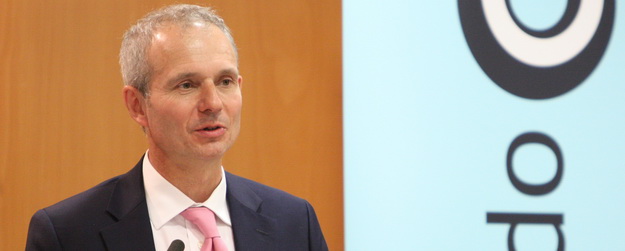Yevropeiska Pravda published an editorial by David Lidington, Minister of State in the Foreign Office of Great Britain, ahead of his visit to Ukraine. We offer you a translation.
This has been a time of great trials for Ukraine, and I have personally witnessed these hardships. But I would like to focus on the positive.In spite of tremendous challenges, Ukraine’s government has maintained unity and made progress in bringing in reforms and in changing appropriate legislation. I have been fortunate to meet with a number of talented parliamentarians and ministers who strive for those changes which Ukrainian society demands. However, a great deal of work lies ahead. The scope of reforms is enormous, and the transition will take time. Some of these reforms will be complex, at least in the short term. But I ask you to look toward the long-term perspective, when Ukraine will become a thriving and safe nation, as this is the ultimate objective of all reforms. I know that your economy is under extreme pressure. I know that the culture of corruption which Ukraine inherited has undermined trust in government institutions. That is why it is extremely important for the government to continue moving forward with reforms. Ukraine has succeeded in meeting the conditions of the IMF programme worth 17.5 billion US dollars by completing the first positive steps in the battle with corruption. We welcome the government’s launch of a reform monitoring mechanism, the plan for reforming state-owned enterprises, as well as the beginning of work on a National Anti-Corruption Bureau. All these initiatives have been developed with the support of Great Britain. However, the time is ripe to demonstrate tangible progress in curbing corruption, which continues to smother the Ukrainian economy.
Great Britain continues to support the Ukrainian army through the provision of non-lethal aid, advice and short-term training, the goal of which is to raise the defense capability of Ukraine’s armed forces.Britain’s army instructors share their experience and skills of tactical intelligence, logistics and medical assistance. We know that our training in military field surgery helps save Ukrainian lives. During his recent visit to Ukraine, our Defense Secretary Michael Fallon announced further military instruction. This includes training in search operations, urban defense planning and engineering work. Great Britain’s Prime Minister David Cameron has confirmed these agreements during a meeting with Ukrainian president Petro Poroshenko in the General Assembly of the United Nations last week. The ceasefire in the east has been holding since the beginning of September and recent reports of arms withdrawal from the ATO zone increase optimism. But this is not the time for complacency. All sides must work toward the fulfillment of the Minsk accords.
We do not recognize and will not recognize the illegal Russian annexation of Crimea.We continue to be concerned by the failure to uphold human rights in Crimea, especially the suffering that has befallen the Crimean Tatars. Our Embassy in Kyiv works closely with human rights organizations in Ukraine. I have also raised these questions with the Russian government, and I have met with Crimean Tatar representatives during my stays in Kyiv. Unfortunately, our world is becoming increasingly dangerous, and I know that Ukrainians are concerned that other crises are distracting Europe. But you may rest assured that Great Britain will continue to support Ukraine and to offer ongoing assistance to Ukraine’s government and people.

David Lidington,
Minister for Europe, British Foreign Office,
specially for Yevropeiska Pravda

